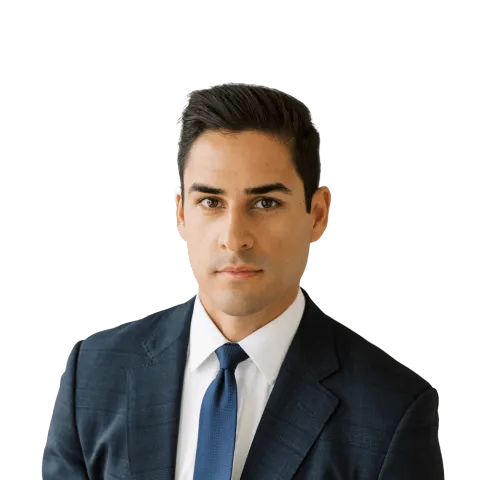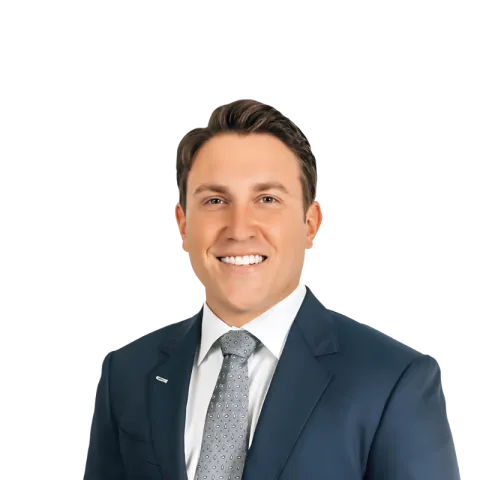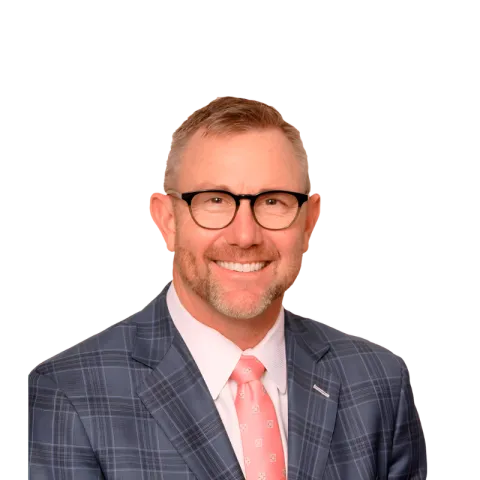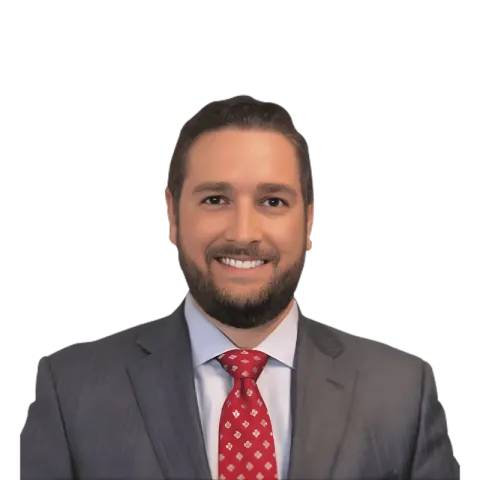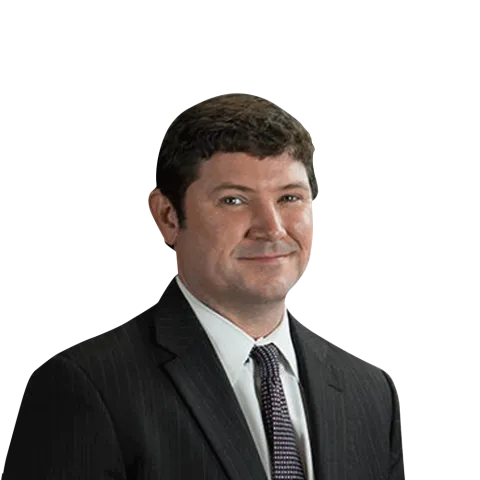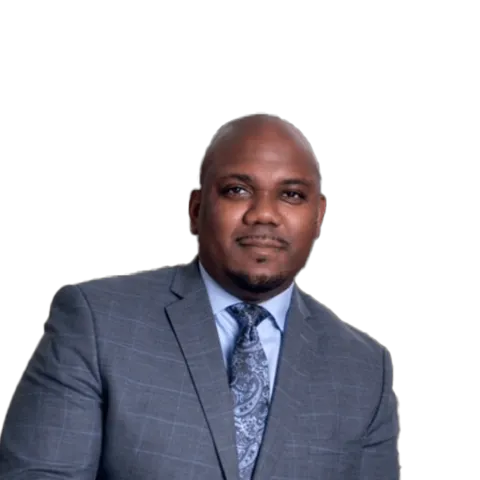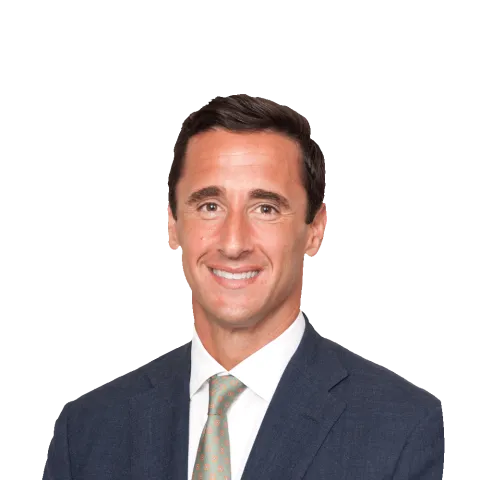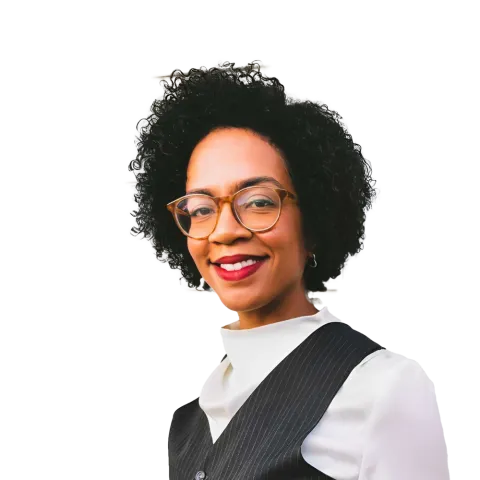Results may vary depending on your particular facts and legal circumstances. The attorney featured may not be licensed in your state. For a full list of attorneys in your state please visit our attorney page.
ATLANTA WORKERS' COMPENSATION ATTORNEY
Work injuries can turn life upside down. Medical bills pile up, paychecks stop, and insurance paperwork gets overwhelming. In Atlanta, injured workers have a right to medical care and wage benefits through workers’ compensation. If your claim is delayed or denied, Morgan & Morgan may be able to help you fight for the benefits the law provides.
Results may vary depending on your particular facts and legal circumstances. The attorney featured may not be licensed in your state. For a full list of attorneys in your state please visit our attorney page.
Helping Injured Workers Get the Benefits They Deserve
Workplace injuries can be physically, emotionally, and financially overwhelming. In Atlanta, employees who suffer accidents on the job may face mounting medical bills, lost income, and uncertainty about their future.
Georgia law provides workers’ compensation benefits to cover medical treatment, rehabilitation, and partial wage replacement for work-related injuries. However, filing a claim or appealing a denial can be complex, often requiring medical documentation, legal knowledge, and skilled advocacy to ensure you receive what you’re entitled to.
A workers’ compensation attorney in Atlanta from Morgan & Morgan can guide you through the claims process, protect your rights, and fight to secure the benefits you need to recover. Schedule a free, no-obligation case evaluation through our website. Let us help you get back on your feet after a workplace injury.
100,000+ Five Star Reviews
The reasons why clients trust Morgan & Morgan.
Results may vary depending on your particular facts and legal circumstances. Based on select nationwide reviews.
Our Results
How It Works
Unsure what to do next? With 35 years of experience, our personal
injury lawyers will guide you every step of the way.
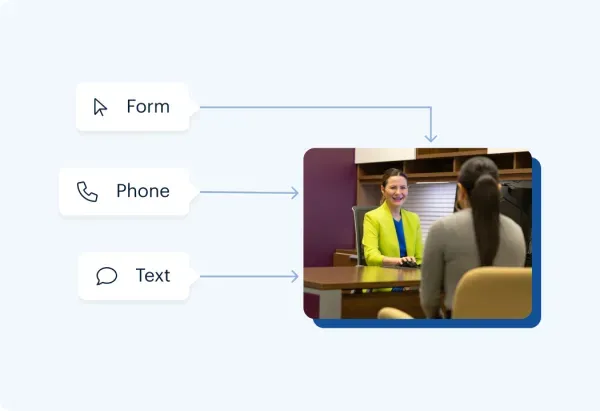
Contact Us 24/7 - It’s Free
Start your claim
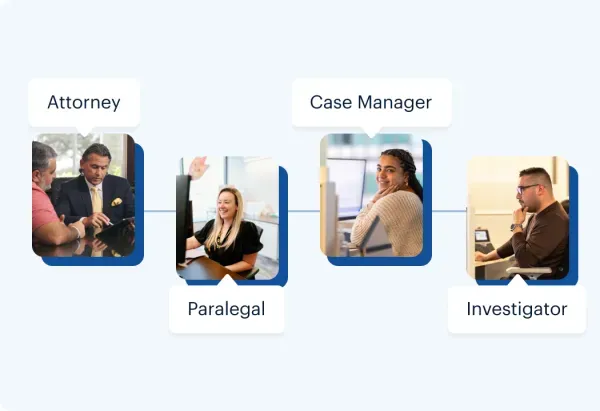
Meet your dedicated attorney
Meet the attorneys
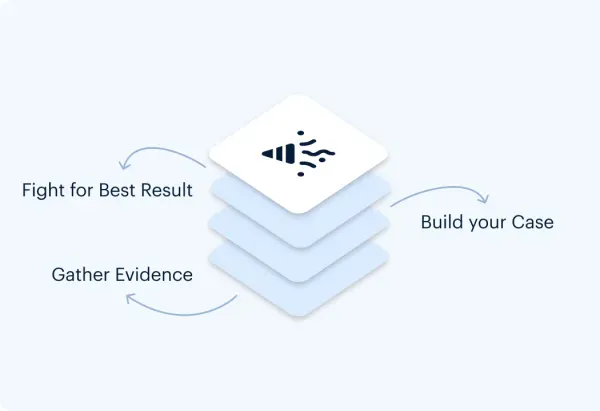
We fight for more
Learn more about the case process
Results may vary depending on your particular facts and legal circumstances. The attorneys shown in these photos may not be licensed in your state. To find an attorney licensed in your area, please visit our attorney page.
Local Care
Backed by America’s Largest Injury Law Firm.
$30 Billion
Recovered for clients
nationwide700,000+
Clients and families
served1,000+
Attorneys across
the country1
Click may change your life
The attorney featured above is licensed in Florida. For a full list of attorneys in your state please visit our attorney page.
Results may vary depending on your particular facts and legal circumstances.
Learn More
Injured and not sure what to do next?
We'll guide you through everything you need to know.
Do I have a workers’ compensation claim in Atlanta?
Most on-the-job injuries and occupational illnesses are covered if they arise out of and in the course of your work. That includes single-incident accidents (falls, machinery injuries), repetitive stress (carpal tunnel, tendonitis), and exposure-based conditions (hearing loss, respiratory issues). If your injury required medical treatment or caused you to miss work, you may have a claim.
What are some common Atlanta workplace injuries?
Workplace accidents don’t always happen in the same way. Some are sudden, such as a fall from a ladder, while others develop gradually, like back pain resulting from years of lifting. Regardless of how they occur, these injuries can leave workers struggling with medical expenses, lost wages, and uncertainty about their future. In Atlanta, some of the most common job-related injuries include:
- Slip, trip, and fall injuries on job sites and in warehouses
- Back, neck, and shoulder injuries from lifting or overexertion
- Construction, trucking, and industrial accidents
- Repetitive use injuries from assembly, driving, typing, or tools
- Burns, electrocution, or chemical exposure
- Occupational illnesses from long-term exposure (dust, fumes, noise)
What types of benefits are available?
Georgia workers’ compensation can provide:
- Medical treatment related to your injury, including specialists, surgery, PT, medications, and mileage to appointments
- Wage replacement (a portion of your average weekly wage) when a doctor keeps you out of work or restricts you
- Temporary disability benefits while you recover; permanent partial disability benefits if you have a lasting impairment
- Vocational help or light-duty coordination when appropriate
- Death benefits for eligible dependents in fatal cases
How and when do I report a work injury?
Report the injury to your employer as soon as possible. Delays can jeopardize your claim. After reporting, your employer/insurer opens a claim, and you’ll complete state forms to start benefits. Early notice also helps preserve video, witness statements, and incident reports.
Can I choose my own doctor?
In Georgia, employers typically offer a panel of physicians or an approved care arrangement. You can choose a doctor from that panel; switching within the panel is usually allowed. If your claim is denied, you can seek your own evaluation to support an appeal. A lawyer can help you select a provider who understands work-injury documentation and restrictions.
What if my claim is denied?
Denials are common, often for “insufficient evidence,” “pre-existing condition,” or “not work-related.” You can appeal to be heard by an administrative law judge. A workers’ compensation attorney will:
- Gather medical records, imaging, and expert opinions
- Prepare you for testimony and cross-examination
- Challenge insurer's Independent Medical Examination (IME) findings
- Pursue benefits and penalties where appropriate
What’s the difference between temporary and permanent disability?
Not all workplace injuries heal the same way. Some employees can return to work after a period of recovery, while others face lasting limitations. Georgia’s workers’ compensation system recognizes this by dividing disability benefits into temporary and permanent categories:
- Temporary Total/Partial Disability (TTD/TPD): Wage benefits while you’re off work or on reduced hours due to restrictions.
- Permanent Partial Disability (PPD): A one-time or scheduled benefit when a doctor assigns a permanent impairment rating after you reach maximum medical improvement.
Can I be fired for filing a claim?
Retaliation is unlawful. If your employer cuts hours, reassigns, or terminates you because you exercised your workers’ compensation rights, talk to an attorney immediately. We can assess additional remedies in conjunction with your compensation case.
What if my employer doesn’t have workers’ compensation insurance?
Most Georgia employers with a minimum number of employees are required to carry coverage. If your employer is uninsured, there may still be recovery paths, including claims against the employer directly or other responsible parties. Get legal help fast; these cases move differently.
Can I sue my employer?
Workers’ compensation is generally the exclusive remedy against your employer for work injuries. However, you may have a third-party claim against others who contributed to your injury, e.g., a negligent subcontractor, property owner, or equipment manufacturer. These claims can include pain and suffering and may significantly increase your overall recovery.
How do IMEs and “second opinions” work?
Insurers often send injured workers to Independent Medical Exams (IMEs). An IME can impact your benefits, work status, and impairment rating. We prepare clients for IMEs, challenge inadequate reports, and line up treating-physician opinions or independent specialists when needed.
What do I need to know about light duty and returning to work?
If your doctor releases you to light duty, your employer must offer suitable work within your restrictions. If the position is unsuitable or increases your risk, your lawyer can address it with the insurer and the judge. Never exceed medical restrictions to “keep your job”; that can prolong injuries and harm your case.
What if my injury wasn’t from a single accident but from repeated work duties?
Not every valid claim involves a single accident. If your job duties gradually caused injury (e.g., chronic back pain) or exposure (e.g., lung issues), you can still qualify. The key is medical evidence linking your condition to your work. Consistent treatment notes and job-duty descriptions matter.
How long until I receive benefits?
Timelines vary. Prompt reporting, documented restrictions, and responsive medical providers help expedite the process. If benefits are wrongfully delayed or underpaid, we advocate for compliance and seek penalties when permitted by law.
What steps can I take to strengthen and maximize my claim?
Strengthening your workers’ compensation claim often comes down to the details. Insurance companies look for gaps, inconsistencies, or mistakes they can use to reduce or deny benefits. By being proactive and organized, you can give your claim the strongest foundation possible.
- Report promptly and follow all medical advice.
- Choose a panel doctor who understands work injuries.
- Keep a diary of symptoms, restrictions, missed work, and out-of-pocket costs.
- Save pay stubs, mileage logs, prescriptions, and denial letters.
- Don’t post injury details on social media.
- Seek legal assistance before providing recorded statements or participating in IMEs.
Do I need a workers’ compensation attorney in Atlanta?
You’re not required to have a lawyer, but it can make a major difference. An experienced workers’ compensation lawyer can help you:
- Prove the injury is work-related and medically supported
- Calculate average weekly wage correctly (including overtime/bonuses when applicable)
- Protect wage checks during light-duty disputes
- Navigate hearings, mediations, and settlement strategy
- Identify any third-party claims to increase total recovery
Morgan & Morgan works on a contingency fee basis. The Fee Is Free™, you pay nothing unless we win.
What evidence should I collect after a work injury?
Building a strong workers’ compensation case requires more than just reporting the accident. The right documentation helps prove how the injury happened, the impact on your job, and what benefits you’re entitled to. Some of the most important evidence includes:
- Incident report and witness names
- Photos/video of the hazard or equipment
- Job-duty descriptions and training records
- Medical records, work notes, and restrictions
- Company communications about modified duty or scheduling
- Any IME notices or insurer correspondence
How are trucking, construction, and other hazardous work cases handled?
High-risk industries, such as construction, trucking, and industrial work, often involve multiple parties who may share responsibility for an injury. In these situations, your workers’ compensation claim may only cover part of your losses. Our attorneys frequently coordinate workers' compensation benefits with third-party lawsuits against subcontractors, equipment manufacturers, or maintenance providers when their negligence has contributed to the accident. These claims can arise from crane failures, forklift accidents, trench collapses, roadway incidents, refinery explosions, or unsafe warehouse practices. By pursuing every available avenue, we work to maximize recovery for injured workers in hazardous fields.
What are the deadlines for Atlanta workers’ compensation cases?
Workers’ compensation has several deadlines: providing prompt notice to your employer, filing with the state board on time, and adhering to strict appeal windows. Missing a required step can harm your case. If you’re unsure about your status, please contact us immediately. We’ll review your timeline and file the necessary documents to protect your rights.
Why should I choose Morgan & Morgan for my workers’ compensation case?
When you’re hurt at work, you deserve more than a quick settlement; you deserve a firm with the experience and resources to stand up to insurers and employers. At Morgan & Morgan, our dedicated workers’ compensation team includes attorneys, case managers, and experts who focus exclusively on work injury claims. We know how to gather the medical proof needed, challenge insurer tactics, and fight for every benefit you’re owed.
If you were injured on the job in Atlanta, don’t go through the process alone. Contact Morgan & Morgan today for a free, no-obligation case evaluation, and let us fight for the medical care, wage support, and peace of mind you deserve.
